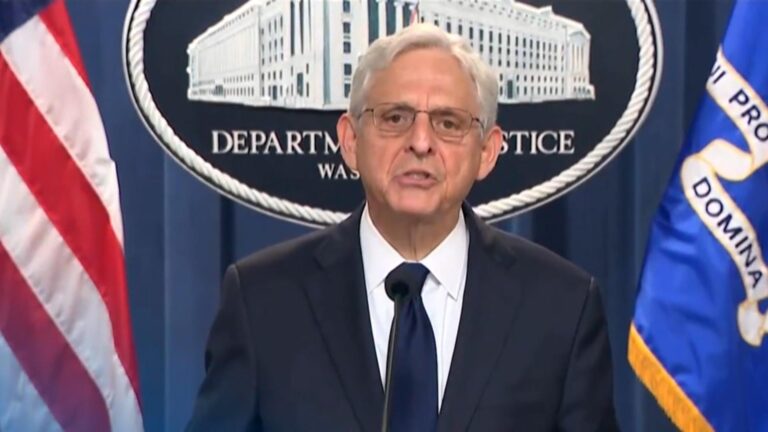In a sweeping crackdown on healthcare fraud, U.S. authorities have unsealed charges against 11 individuals allegedly tied to a Russia-based operation that defrauded Medicare of an estimated $10.6 billion. The complex scheme, which spanned multiple years and exploited vulnerabilities in the federal healthcare system, highlights ongoing challenges in securing public funds against sophisticated international fraud networks. This latest development underscores the government’s intensified efforts to protect Medicare, one of the nation’s largest social insurance programs, from large-scale criminal enterprises.
U.S. Uncovers Massive Russia-Based Fraud Ring Targeting Medicare Funds
Federal prosecutors have unveiled a sprawling international fraud network operating from Russia, responsible for siphoning off around $10.6 billion from the U.S. Medicare system. The fraudulent activities, which spanned multiple years, involved complex schemes where fake companies submitted thousands of bogus medical claims for services that were never provided. Authorities have charged 11 individuals believed to be the masterminds behind this elaborate operation, marking one of the largest healthcare fraud busts in recent history.
The investigation revealed not only the staggering financial scope but also the sophisticated methods employed to deceive regulators and insurers. Among the tactics uncovered were:
- Use of counterfeit medical records and doctor credentials
- Creation of shell companies to launder illicit gains
- Coordination with complicit healthcare providers and billing agents
The U.S. Department of Justice emphasized the significance of this crackdown as a deterrent to future international fraud schemes targeting public health programs.
| Key Details | Information |
|---|---|
| Amount Defrauded | $10.6 billion |
| Number of Charged Individuals | 11 |
| Primary Location | Russia |
| Modus Operandi | Fake claims and shell companies |
Investigation Reveals Complex Network Exploiting Healthcare System Vulnerabilities
The federal authorities have uncovered an intricate web of fraudulent activities orchestrated by a Russia-based group targeting the U.S. healthcare system. Utilizing a series of shell companies and fake medical providers, the network exploited Medicare’s payment mechanisms to siphon off an estimated $10.6 billion over several years. Operating across multiple states, the scheme involved thousands of falsified patient claims for services never rendered, draining critical funds from government healthcare programs.
Key facets of the operation included:
- False Billing: Submission of fabricated claims with inflated prices for routine procedures.
- Data Manipulation: Use of stolen identities and counterfeit medical records to legitimize claims.
- Cross-Border Coordination: Sophisticated communication between Russian operatives and U.S.-based intermediaries for laundering proceeds.
| Aspect | Details | Impact |
|---|---|---|
| Duration | 5+ Years | Long-term financial drain |
| Participants | 11 Charged | Extensive network reach |
| Geographic Scope | Multiple U.S. States | Widespread system vulnerability |
| Total Loss | $10.6 Billion | Major federal program impact |
Experts Urge Strengthened Oversight and Enhanced Cross-Border Cooperation to Combat Fraud
In light of the recent indictment charging 11 individuals connected to an elaborate Russia-based Medicare fraud scheme totaling $10.6 billion, experts are unanimously calling for a more robust framework of oversight. This multifaceted fraud operation underscores glaring vulnerabilities within Medicare’s current monitoring systems, which hackers and scammers have exploited with increasing sophistication. Industry leaders emphasize the urgent need for advanced data analytics and real-time auditing technologies to detect anomalies more swiftly, thus preventing large-scale financial damages before they escalate.
Beyond domestic improvements, authorities advocate for strengthened international collaboration to dismantle transnational fraud networks systematically. Enhanced cooperation between U.S. agencies and foreign counterparts can facilitate faster information sharing and synchronized enforcement actions. Experts recommend the following critical measures to bolster this global effort:
- Joint task forces with shared jurisdiction and resources
- Standardized cross-border legal frameworks to streamline prosecution
- Regular intelligence exchanges focusing on emerging cyber fraud tactics
- Training programs for foreign officials to identify and counter Medicare-related scams
| Measure | Expected Impact |
|---|---|
| Real-Time Auditing | Reduce fraud detection lag |
| Joint Task Forces | Coordinated international crackdowns |
| Legal Harmonization | Smoother extraditions and trials |
| Foreign Training Programs | Heightened global fraud awareness |
Wrapping Up
The charges unveiled in this sweeping indictment underscore the ongoing challenges faced by U.S. authorities in combating sophisticated international fraud schemes targeting government programs. As investigators continue to unravel the full extent of this operation, the case serves as a stark reminder of the vigilance required to protect Medicare and other vital public resources from exploitation. Further developments are anticipated as the legal process moves forward.




